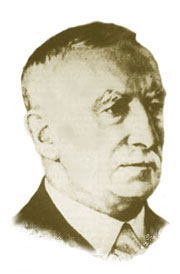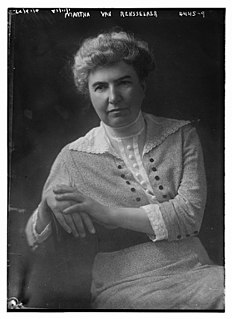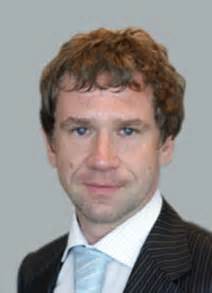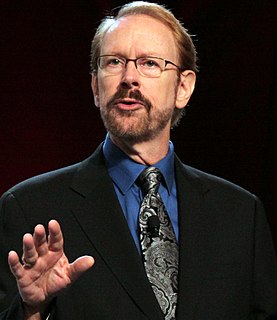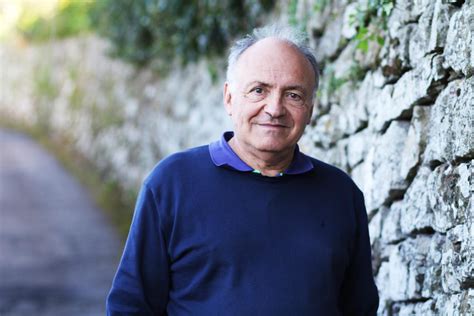Top 533 Raises Quotes & Sayings - Page 9
Explore popular Raises quotes.
Last updated on April 17, 2025.
The American people have no idea they are paying the bill. They know that someone is stealing their hubcaps, but they think it is the greedy businessman who raises prices or the selfish laborer who demands higher wages or the unworthy farmer who demands too much for his crop or the wealthy foreigner who bids up our prices. They do not realize that these groups also are victimized by a monetary system which is constantly being eroded in value by and through the Federal Reserve System.
The Good Lord Bird don't run in a flock. He Flies alone. You know why? He's searching. Looking for the right tree. And when he sees that tree, that dead tree that's taking all the nutrition and good things from the forest floor. He goes out and he gnaws at it, and he gnaws at it till the thing gets tired and it falls down. And the dirt from it raises other trees. It gives them good things to eat. It makes 'em strong. Gives 'em life. And the circle goes 'round.
Whether advanced driver training helps drivers in the long term is one of those controversial and unresolved mysteries of the road, but my eye-opening experience at Bondurant raises the curious idea that we buy cars—for most people one of the most costly things they will ever own—with an underdeveloped sense of how to use them. This is true for many things, arguably, but not knowing what the F9 key does in Microsoft Word is less life-threatening than not knowing how to properly operate antilock brakes.
The child, in danger of the fire, just clings to the fireman, and trusts to him alone. She raises no question about the strength of his limbs to carry her, or the zeal of his heart to rescue her; but she clings. The heat is terrible, the smoke is blinding, but she clings; and her deliverer quickly bears her to safety. In the same childlike confidence cling to Jesus, who can and will bear you out of danger from the flames of sin.
Lincoln is such an iconic figure in American history. He seems to reflect so many elements of American culture that we consider essential, whether it's the self-made man, the frontier hero, the politician who tries to act in a moral way as well as in a political way, Honest Abe. His career raises these questions that are still with us, the power of the federal government vis-à-vis the states, the question of race in American life, can we be a society of equals? There are so many issues central to Lincoln's career that are still part of our society one hundred and fifty years later.
But for the Jews this moral-spiritual issue raises the same societal problem it does for the Greeks: how can a man have the "right" to make himself spiritually or rationally destitute or retarded when this corrupts the whole quality of the culture that we all together need and depend on? If anyone wants a cloistered and closed-minded life, an anti-aristic life, let him either go off and live among the wolves-or else join the community of like-minded idiots that (alas) compose and define the basic terms of modern society.
But as the priceless treasure too frequently hides at the bottom of well, it needs some courage to dive for it, especially as he that does so will be likely to incur more scorn and obloquy for the mud and water into which he has ventured to plunge, than thanks for the jewel he procures; as like in manner, she who undertakes the cleansing of a careless bachelor's apartment will be liable to more abuse for the dust she raises than commendation for the clearance she effects.
Almsgiving tends to perpetuate poverty; aid does away with it once and for all. Almsgiving leaves a man just where he was before. Aid restores him to society as an individual worthy of all respect and not as a man with a grievance. Almsgiving is the generosity of the rich; social aid levels up social inequalities. Charity separates the rich from the poor; aid raises the needy and sets him on the same level with the rich.
In the last few decades entire new categories of waste have come to plague and menace the American scene. Pollution is growing at a rapid rate. Pollution destroys beauty and menaces health. It cuts down on efficiency, reduces property values and raises taxes. Almost all these wastes and pollutions are the result of activities carried on for the benefit of man. A prime national goal must be an environment that is pleasing to the senses and healthy to live in. Our Government is already doing much in this field. We have made significant progress. But more must be done.
She's not here," I tell him. Buttercup hisses again. "She's not here. You can hiss all you like. You won't find Prim." At her name, he perks up. Raises his flattened ears. Begins to meow hopefully. "Get out!" He dodges the pillow I throw at him. "Go away! There's nothing left for you here!" I start to shake, furious with him. "She's not coming back! She's never ever coming back here again!" I grab another pillow and get to my feet to improve my aim. Out of nowhere, the tears begin to pour down my cheeks. "She's dead, you stupid cat. She's dead.
The whole financial structure of Wall Street seems to rise or fall on the mere fact that the Federal Reserve Bank raises or lowers the amount of interest. Any business that can't survive a one percent change must be skating on thin ice.
Why even the poor farmer took a raise of another ten percent just to get a loan from the bank, and nobody from the government paid any attention. But you let Wall Street have a nightmare and the whole country has to help to get them back into bed again.
There are many good reasons for young people to go off to college, open their minds, develop their skills and enjoy themselves. But probably the major attraction is the fact that income disparities have increased sharply between those who go to college versus those who do not. This pattern corresponds with the stagnation of average wages since the early 1970s. The reality under neoliberalism has been that, if you want to have a decent shot at a good-paying job with a chance for promotions and raises over time, the most important first step is to get a college education.
So use all that is called fortune. Most men gamble with her, and gain all and lose all, as her wheel rolls... A political victory, a rise of rents, the recovery of your sick or the return of your absent friend, or some other favorable event raises your spirits, and you think good days are preparing for you. Do not believe it. Nothing can bring you peace but yourself. Nothing can bring you peace but the triumph of principles.
I'm not saying that all women are blameless - all women are not. There are women with despicable characters who are cruel and terrible and some of them are mothers. But why do we blame our mothers more than our fathers? We let our fathers get away scot-free. We hardly even knew who they were in many cases, given the way this culture raises kids, and they may have been quite cruel. They may even have raped us as children, but even if they raped us, we will blame our mothers for not protecting us instead of blaming our fathers who actually did it.
I leave Sisyphus at the foot of the mountain. One always finds one's burden again. But Sisyphus teaches the higher fidelity that negates the gods and raises rocks. He too concludes that all is well. This universe henceforth without a master seems to him neither sterile nor futile. Each atom of that stone, each mineral flake of that night-filled mountain, in itself, forms a world. The struggle itself toward the heights is enough to fill a man's heart. One must imagine Sisyphus happy.
Man alone knows that he must die; but that very knowledge raises him, in a sense, above mortality, by making him a sharer in the vision of eternal truth. He becomes the spectator of his own tragedy; he sympathizes so much with the fury of the storm that he has no ears left for the shipwrecked sailor, though the sailor were his own soul. The truth is cruel, but it can be loved, and it makes free those who have loved it.
Unfortunately, I have dedicated great effort to the task of compiling this ‘sensitive words glossary,’ and I have mastered my filtering skills. I knew which words and sentences had to be cut, and I accepted the cutting as if that was the way it should be. In fact, I will often take it on myself to save time and cut a few words. I call this ‘castrated writing’ - I am a proactive eunuch, I have already castrated myself before the surgeon raises his scalpel.
Anybody doesn't like these pitchers don't like potry, see? Anybody don't like potry go home see television shots of big hatted cowboys being tolerated by kind horses. Robert Frank, Swiss, unobtrusive, nice, with that little camera that he raises and snaps with one hand he sucked a sad poem right out of America onto film, taking rank among the poets of the world. To Robert Frank I now give this message: You got eyes.
Google is reeling right now. This is the kind of thing, this is the kind of charge that just sends leftists up the tree, that they're unfair, that they're discriminating on the basis of gender. Ladies, tell Google to prove it to you that the guy who wrote the memo is wrong. What you say to Google is, "Show me the money." Go for the money. Tell 'em you want money. Tell 'em you want raises. Tell Google to prove it. Don't join the protest march and start throwing underwear and bras. Just demand the money. They're reeling right now. Hit 'em!
The main characteristic of Nature's farming can therefore be summed up in a few words. Mother earth never attempts to farm without live stock; she always raises mixed crops; great pains are taken to preserve the soil and to prevent erosion; the mixed vegetable and animal wastes are converted into humus; there is no waste; the processes of growth and the processes of decay balance one another; ample provision is made to maintain large reserves of fertility; the greatest care is taken to store the rainfall; both plants and animals are left to protect themselves against disease.
Philosophy, though unable to tell us with certainty what is the true answer to the doubts which it raises, is able to suggest many possiblities which enlarge our thoughts and free them from the tyranny of custom. Thus, while diminishing our feeling of certainty as to what things are, it greatly increases our knowledge as to what the may be; it removes the somewhat arrogant dogmatism of those who have never travelled into the region of liberating doubt, and it keeps alive our sense of wonder by showing familar things in an unfamilar aspect
One of the marks of our world is perhaps this reversal: we live according to a generalized image-repertoire. Consider the United Sates, where everything is transformed into images: only images exist and are produced and are consumes ... Such a reversal necessarily raises the ethical question: not that the image is immoral, irreligious, or diabolic (as some have declared it, upon the advent of the Photograph), but because, when generalized, it completely de-realizes the human world of conflicts and desires, under cover of illustrating it.
When top executives get huge pay hikes at the same time as middle-level and hourly workers lose their jobs and retirement savings, or have to accept negligible pay raises and cuts in health and pension benefits, company morale plummets. I hear it all the time from employees: This company, they say, is being run only for the benefit of the people at the top. So why should we put in extra effort, commit extra hours, take on extra responsibilities? We'll do the minimum, even cut corners. This is often the death knell of a company.
When people in my generation started to write, we did not actually have much of a movie industry, much of a theater scene, much of a television industry or other creative outlets. But we had a lot of aspiring writers. All that has changed. We now have a movie industry, television industry and lots of theater. But we have retained a large contingent of writers and a dedicated readership. The larger number of people in society who value writing, the larger number of good writers will be produced. That's my belief. It raises the bar.
Here is what Hillary Clinton said. Crooked Hillary said, "You know, when we talk about the Supreme Court" - fake smile - "it really raises the central issue in this election, namely what kind of country are we going to be." Well, she's right about that, actually, but not in the way she means. "What kind of opportunities will we provide our citizens." The Supreme Court's not about that. Supreme Court is the law, and their cases are not about opportunities being provided for our citizens.
Teddy Kennedy's big new idea is to wheel out his 18th proposal to raise the minimum wage. He's been doing this since wages were paid in Spanish doubloons (which coincidentally are now mostly found underwater). Kennedy refuses to countenance any risky schemes like trying to grow the economy so people making minimum wage get raises because they've been promoted. Kennedy's going down and he's taking the party with him! (Recognize the pattern?)
Beauty has so many charms, one knows not how to speak against it; and when it happens that a graceful figure is the habitation of a virtuous soul, when the beauty of the face speaks out the modesty and humility of the mind, and the justness of the proportion raises our thoughts up to the heart and wisdom of the great Creator, something may be allowed it,--and something to the embellishments which set it off; and yet, when the whole apology is read, it will be found at last that beauty, like truth, never is so glorious as when it goes the plainest.
Home economics should find its way into the curriculum of every school because the scientific study of a problem pertaining to food, shelter or clothing... raises manual labor that might be drudgery to the plane of intelligent effort that is always self-respecting...Home economics is not one department, in the sense in which dairying or entomology or soils is a department. It is not a single speciality... Many technical and educational departments will grow out of it as time goes on.
Not just any talk is conversation; not any talk raises consciousness. Good conversation has an edge: it opens your eyes to something, quickens your ears. And good conversation reverberates: it keeps on talking in your mind later in the day; the next day, you find yourself still conversing with what was said. That reverberation afterward is the very raising of consciousness; your mind's been moved. You are at another level with your reflections.
Naked I came into the world, but brush strokes cover me, language raises me, music rhythms me. Art is my rod and staff, my resting place and shield, and not mine only, for art leaves nobody out. Even those from whom art has been stolen away by tyranny, by poverty, begin to make it again. If the arts did not exist, at every moment, someone would begin to create them, in song, out of dust and mud, and although the artifacts might be destroyed, the energy that creates them is not destroyed.
Brother raises a hand against brother and son against father (how terrible!) and the father also against son. And moreover it is a continuity-matter, for if the father did not strike the son, they would not be alike. It is done to perpetuate similarity. Oh, Henderson, man cannot keep still under the blows.... A hit B? B hit C?--we have not enough alphabet to cover the condition. A brave man will try to make the evil stop with him. He shall keep the blow. No man shall get it from him, and that is a sublime ambition.
Today the average inhabitant of the western hemisphere knows a little of everything. He has the newspaper on his breakfast table and wireless within reach. For the evening there is the film, cards, or a meeting to complete a day spent in the office or factory where nothing that is essential has been learnt. With slight variation this picture of a low cultural average holds good over the entire range from factory-hand of clerk to manager or director. Only the personal will to culture, in whatever field and however pursued raises modern man above this level.
Even in the era of AIDS, sex raises no unique moral issues at all. Decisions about sex may involve considerations about honesty, concern for others, prudence, and so on, but there is nothing special about sex in this respect, for the same could be said of decisions about driving a car. (In fact, the moral issues raised by driving a car, both from an environmental and from a safety point of view, are much more serious than those raised by sex.)
God ultimately raises up leaders for one primary reason: His glory. He shows His power in our weakness. He demonstrates His wisdom in our folly. We are all like a turtle on a fence post. If you walk by a fence post and see a turtle on top of it, then you know someone came by and put it there. In the same way, God gives leadership according to His good pleasure.
For, as has been indicated from the innate experience as well as from the longings within, a home - home - with all its deeper, inner meanings, is a portion of the entity's desire; to know, to experience, to have the "feel" of, to have the surroundings of that implied by the word home! Is it any wonder then that in all of thy meditation, Ohm-O-h-m-mmmmm has ever been, is ever a portion of that which raises self to the highest influence and the highest vibrations throughout its whole being that may be experienced by the entity?
And more than once in the course of time, the same theme reappears: among the mystics of the fifteenth century, it has become the motif of the soul as a skiff, abandoned on the infinite sea of desires, in the sterile field of cares and ignorance, among the mirages of knowledge, amid the unreason of the world - a craft at the mercy of the sea's great madness, unless it throws out a solid anchor, faith, or raises its spiritual sails so that the breath of God may bring it to port.
Those who are not capable of sinning are said that they have attained freedom. The knowledge of the Truth raises them even more. This makes them both free and above this world. But only Love creates. He who became free thanks to knowledge, because of Love remains a slave of those who have not managed to attain the Freedom of knowledge yet. He brings the knowledge to them and this develops the latter because it calls them to the Freedom. Love takes nothing: how can it take something? Everything belongs to it. It does not say, "This is mine! And this is mine!" But it says: "This is yours!"
You and I must realize that the English language is filled with words that, in addition to their literal meanings, convey distinct emotional intensity. For example, if you develop a habit of saying you 'hate' things - you 'hate' your hair; you 'hate' your job; you 'hate' having to do something - do you think this raises the intensity of your negative emotional states more than if you use a phrase like 'I prefer something else'?
The move from scarcity thinking to abundance thinking, from zero-sum competition to one-hundred-sum collaboration, is not just a “nice” or “moral” idea. In the twenty-first century, it's plain good sense. Scarcity says, “I'm going to keep all my ideas to myself and sell more than anyone else.” Abundance says, “By mentoring, coaching, and sharing all our best ideas, we're going to create a powerful tide that raises all our ships-and we'll all sell more as a result".
When the heart is hard and parched up, come upon me with a shower of mercy. When grace is lost from life, come with a burst of song. When tumultuous work raises its din on all sides shutting me out from beyond, come to me, my lord of silence, with thy peace and rest. When my beggarly heart sits crouched, shut up in a corner, break open the door, my king, and come with the ceremony of a king. When desire blinds the mind with delusion and dust, O thou holy one, thou wakeful, come with thy light and thy thunder.
In the absence of government each man learns to think, to act for himself, without counting on the support of an outside force which, however vigilant one supposes it to be, can never answer all social needs. Man, thus accustomed to seek his well-being only through his own efforts, raises himself in his own opinion as he does in the opinion of others; his soul becomes larger and stronger at the same time.
Action is the music of our life. Like music, it starts from a pause of leisure, a silence of activity which our initiative attacks; then it develops according to its inner logic, passes its climax, seeks its cadence, ends, and restores silence, leisure again. Action and leisure are thus interdependent; echoing and recalling each other, so that action enlivens leisure with its memories and anticipations, and leisure expands and raises action beyond its mere immediate self and gives it a permanent meaning.
A town, before it can be plundered and, deserted, must first be taken; and in this particular Venus has borrowed a law from her consort Mars. A woman that wishes to retain her suitor must keep him in the trenches; for this is a siege which the besieger never raises for want of supplies, since a feast is more fatal to love than a fast, and a surfeit than a starvation. Inanition may cause it to die a slow death, but repletion always destroys it by a sudden one.
Non...I am DANCING IN MY NUDDY-PANTS!!!' And we both laughed like loons on loon tablets. I danced for ages round the house in my nuddy-pants. Also, I did this brilliant thing-I danced in the front window just for a second whilst Mr. Across the Road was drawing his curtains. He will never be sure if he saw a mirage or not. That is the kind of person I am. Not really the kind of person who goes and raises elks in Whakatane.
A little criticism makes me angry, and a little rejection makes me depressed. A little praise raises my spirits, and a little success excites me. It takes very little to raise me up or thrust me down. Often I am like a small boat on the ocean, completely at the mercy of its waves. All the time and energy I spend in keeping some kind of balance and preventing myself from being tipped over and drowning shows my life is mostly a struggle for survival: not a holy struggle, but an anxious struggle resulting from the mistaken idea that it is the world that defines me.
The study of the properties of numbers, Plato tells us, habituates the mind to the contemplation of pure truth, and raises us above the material universe. He would have his disciples apply themselves to this study, not that they may be able to buy or sell, not that they may qualify themselves to be shopkeepers or travelling merchants, but that they may learn to withdraw their minds from the ever-shifting spectacle of this visible and tangible world, and to fix them on the immutable essences of things.
You know what higher interest rates mean. To you it means a higher mortgage payment, a higher car payment, a higher credit card payment. To our economy, it means business people will not borrow as much money, invest as much money, create as many new jobs, create as much wealth, raise as many raises.
I don't believe in religion. I believe the example of Christ. I believe in the example of a perfect human being that if you can live for other people away from yourself you will be happy. If you live for yourself you will be unhappy and then you will not be able to sleep or do anything else... finally. I think insofar, and I really believe this, insofar as people do live with the other fellow [God] in mind, they have to be happy you know? Because it raises you up.
Something similar happens on the other side of the equation: Giving kindness does us as much good as receiving it. . . . The true benefit of kindness is being kind. Perhaps more than any other factor, kindness gives meaning and value to our life, raises us above our troubles and our battles, and makes us feel good about ourselves.
I think a decent society should protect rights to private property within limits, but not concentrations of private power that infringe on the freedom and rights of others, including exploitation of labor, and that convert any democratic forms into what have been called sometimes "hierarchical democracies," like ours, in which some have vastly greater influence over public policy than others. Spelling all of this out is a complex matter that raises many issue and problems that are impossible to address here.
The Problem is: many terrific women have made themselves overqualified for the job of wife, because many men are looking for a woman with 'receptionist-level wife skills', not 'CEO-level wife skills'. Meaning: If a woman doesn't hang on a man's every word, is too independent, challenges his leadership, wants to create her own hours, demands emotional raises, then there won't be as many openings for the kind of wife position she is seeking. One of the big problems with marriages in the nineties: no room for two husbands.
It is not our free will but 'it is the Lord who sets the captive free' (Ps. 145:7). It is not our own virtue but 'it is the Lord who lifts up those who were laid low' (Ps. 145:8). It is not application to reading but 'it is the Lord who gives light to the blind' (Ps. 145:8). It is not our cautiousness but 'it is the Lord who protects the stranger' (Ps. 145:9). It is not our endurance but 'it is the Lord who raises or gives support to the fallen' (Ps. 144:14).
Biblical higher criticism is preserved in the particular enclave of academic Christian scholarship and is thought to be too unfruitful to share with the average pew-sitter, for it raises more questions than the church can adequately answer. So the leaders of the church would protect the simple believers from concepts they were not trained to understand. In this way that ever-widening gap between academic Christians and the average pew-sitter made its first appearance.



















